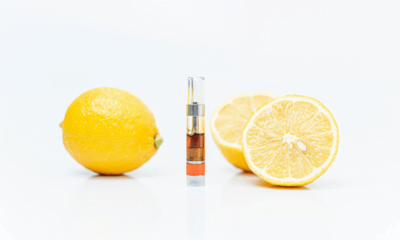CBD is being researched as a potential treatment for a diverse range of different health conditions, from PTSD and depression to epilepsy, chronic pain and neurodegenerative diseases.
But what about people who don’t suffer from such conditions? Can CBD benefit the average person in their daily life? The answer is, yes.
Despite its association with the cannabis plant, CBD is becoming increasingly popular as a supplement for taking at work. People are taking CBD to reduce stress, manage anxiety and boost their productivity.
Journalist Brenna Kilbane wrote in an article for GQ: “My CBD gummies…live in the top drawer of my desk. When I take one, I feel slightly but markedly better. My chair feels like it is mangling my body less. It’s harder to make a fist. It’s easier to navigate an hour or two of bullshit, which means it’s easier to do my job. It doesn’t matter if anybody notices that I am 10% more pleasant, because I feel 10% more pleasant, anyway. Simply: Every day is a better day.”
Stress linked with work is a widespread issue in the UK with a 2020 study finding that 79 per cent of people felt work stress frequently.
In an effort to deal with this stress, many people are turning to CBD. Early studies show that the calming properties of the compound has a lot of potential for helping people deal with the day-to-day pressures of their working life.
With prolonged periods of stress come long-term effects, called oxidative stress which can cause fatigue, “brain fog”, muscle and joint pain and headaches. CBD is thought to help reduce these effects due to its antioxidant and anti-inflammatory properties.
Another key area of cannabis research looks at the possible benefits of CBD for managing social anxiety; a common mental health disorder which affects people’s ability to give presentations, speak up in meetings or even engage in conversation with colleagues and clients.
Lack of focus and concentration, especially during COVID-19 lockdowns, are common factors that affect workplace productivity. Everyone experiences slumps in their motivation at times. Some people have employed the help of CBD to battle these feelings and boost their focus.
Other professionals who take CBD cite its impact on their mood. This may be due to the compound’s effect on one of the body’s serotonin receptors, serotonin 1A.
Serotonin is known as the ‘happy chemical’ for a reason. It is responsible for the release of hormones such as oxytocin which affects social behaviour and cortisol which regulates metabolisms and the brain’s reaction to stress.
CBD affects every individual differently. For some, CBD creates a released state conducive to sleep, whereas others report a boost in energy levels following a dose of CBD.
How your body is affected will also depend on the dosage, concentration and quality of the product. To boost your energy levels, you should try taking a small dose at the beginning and end of the day.
Staying motivated and productive isn’t just about keeping your energy levels high while at work. Equally as important is giving your body and mind a chance to recharge when you’re away from your desk.
Poor sleep can have a disastrous effect on productivity by casuing fatigue, poor concentration and irritability. Although scientists are uncertain about how CBD affects sleeping patterns, early research shows that CBD has the potential to improve quality of sleep.
There are lots of different ways to take CBD, from beverages to creams. Sublingual application is a great method for producing a quick onset time and increasing bioavailability (the amount of CBD absorbed into the bloodstream). Sublingual means placing a CBD oil or other dissolvable product under the tongue, allowing the mouth’s tissues to absorb the CBD into the bloodstream.
It is also important to ensure the quality of the product you buy. Given the limited regulation of the CBD industry, consumers should always check the label and company websites for indications of quality. Things to look out for include certificates from third party tests, THC content of less than 0.03% and extraction methods using CO2 or alcohol rather than hydrocarbon extraction which can contain dangerous toxins.

 News6 months ago
News6 months ago
 News6 months ago
News6 months ago
 Science5 months ago
Science5 months ago
 Industry6 months ago
Industry6 months ago
 News6 months ago
News6 months ago
 News5 months ago
News5 months ago
 Health4 months ago
Health4 months ago
 News5 months ago
News5 months ago












